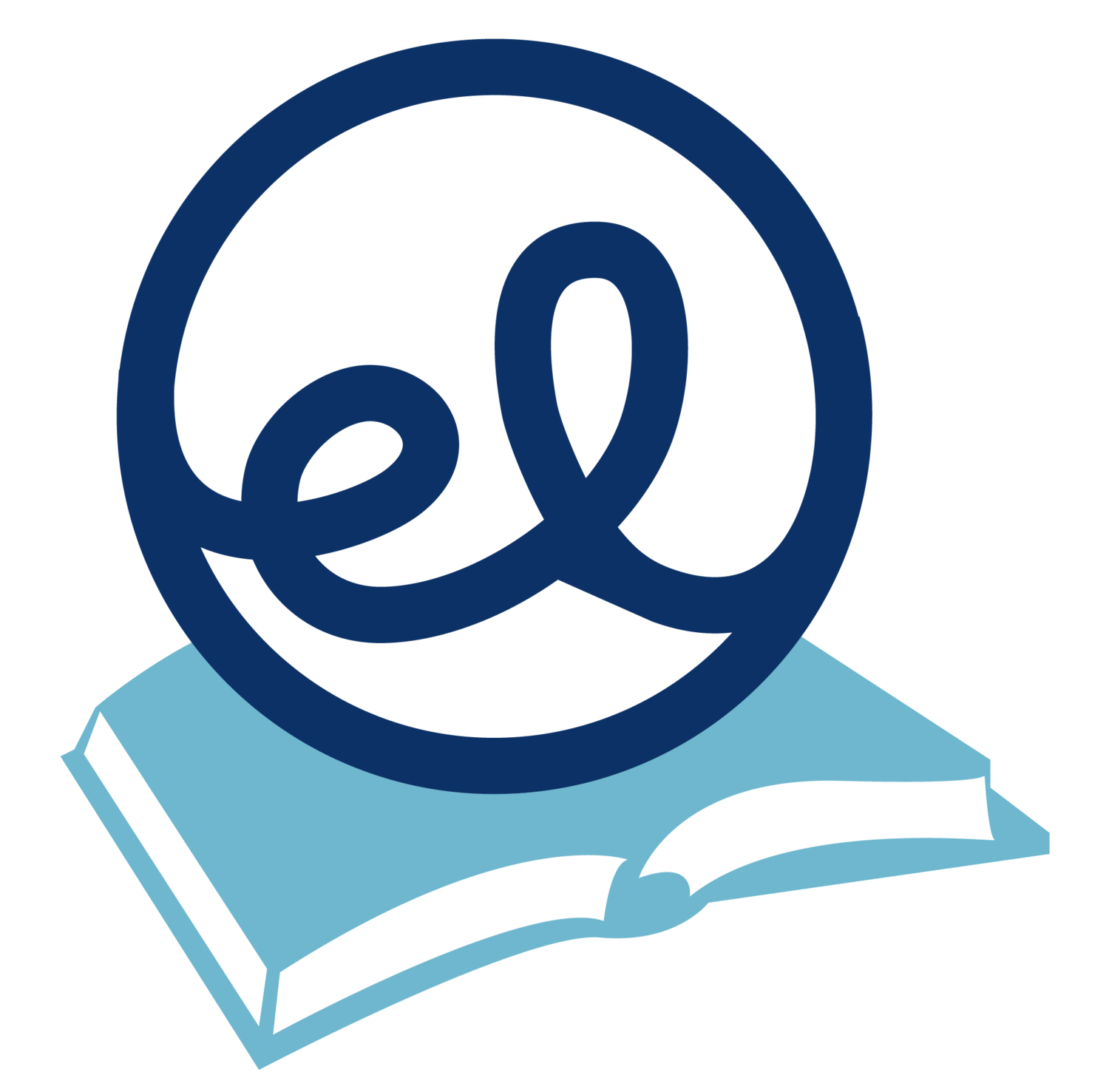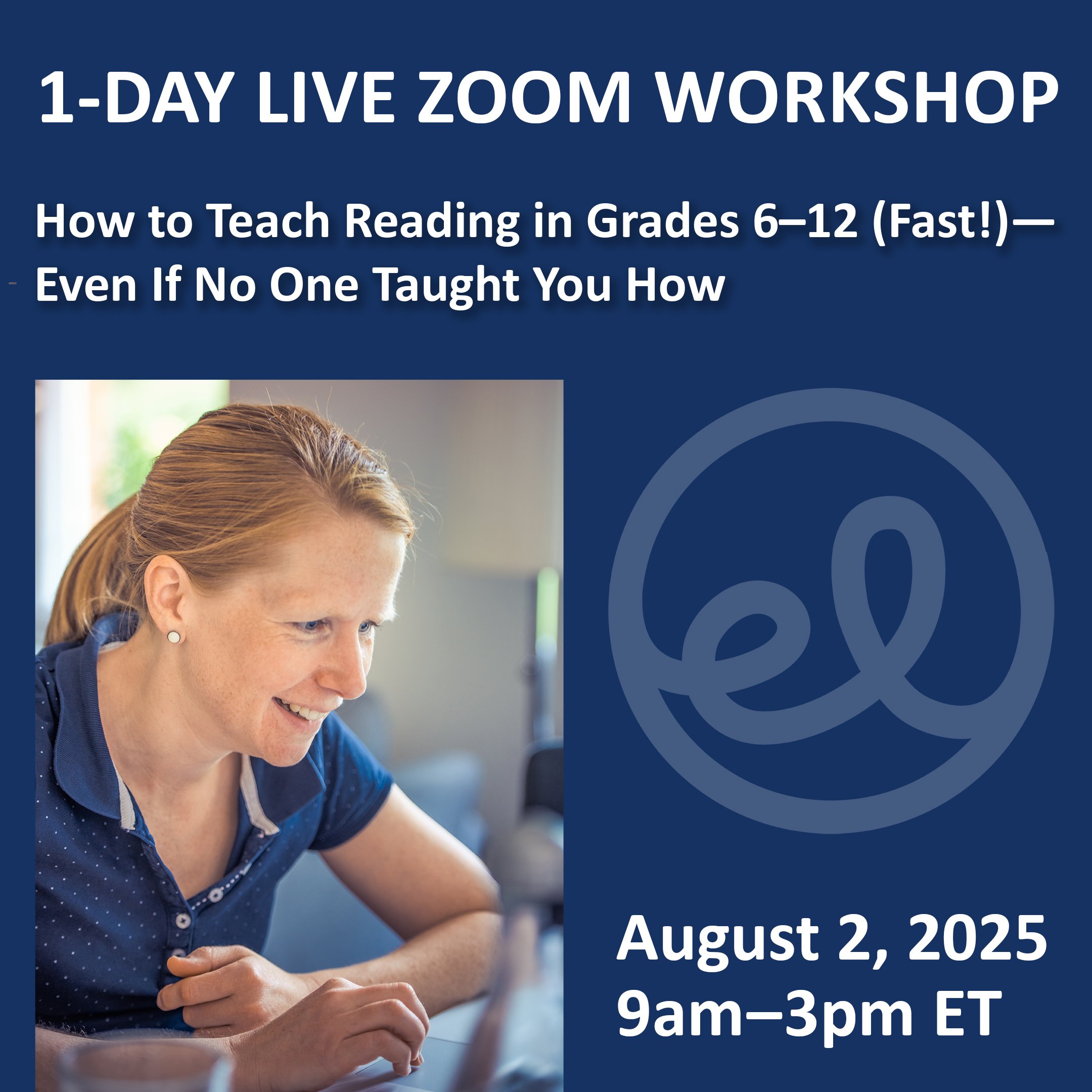How to Teach Reading in Grades 6–12 (Fast!)—
Even If No One Taught You How
LIVE ZOOM WORKSHOP
This 1-day intensive gives you a crash course in the Science of Reading—tailored specifically for secondary classrooms. No theory overload. No shame. Just practical, research-based strategies you can use immediately — even if you’ve never taught reading in your life.
We’ll cover:
What reading is and how the adolescent brain processes it
How to teach phonics and fluency (yes, even in high school!)
The connection between vocabulary, writing, and comprehension
Whether you're a middle school or high school content-area teacher (ELA, science, social studies, etc.) , a seasoned literacy coach, or a principal looking to lead stronger reading instruction — this course is for you!
At the conclusion of the workshop, a certificate of completion documenting 6 hours of professional development will be be emailed to participants.
$129
REGISTRATION IS CLOSED FOR THE AUGUST 2ND WORKSHOP.
CONTACT US FOR INFO ABOUT THE NEXT ONE!
Special rate of $99 per participant for groups of 4 or more from the same school district. Contact us to register your team!
Want to use a purchase order? Reach out for instructions.
This workshop session will be held on Zoom. Enrolled educators need an active email address, internet connection, and a device with video and sound capabilities. Most operating systems and browsers are supported; for the best experience, the latest version of Google Chrome, Mozilla Firefox, or Chromium Edge is recommended.
Rave reviews from the June 2025 workshop!
June 16-18, 2025 | How to Teach Reading in Grades 6–12 (Fast!)—Even If No One Taught You How
Anna W., teacher in Illinois
“I learned so much during this PD. I am excited to start planning for next school year and incorporating these strategies into my everyday lessons – which I feel is totally doable!”
Kristy K., teacher in Indiana
“Even after 23 years of teaching 8th grade ELA, the discussions and strategies were very helpful ….The three hours each day flew by, and my head is spinning (in a good way)! ”
Shelle R., teacher in Wyoming
“The information that was shared was actually applicable to the junior high and high school level! Dr. French is very personable and is a great presenter of information. ”
Taught by Dr. Jenny French |
Taught by Dr. Jenny French |
Dr. Jenny French brings her experience as a teacher, literacy coach, curriculum director, and assistant superintendent to schools all over the country.
As a sought-after school improvement consultant, Dr. Jenny French is delighted to share her wealth of experience.
Jen’s career has encompassed all facets of education: elementary classroom teacher, middle school language arts teacher, secondary literacy coach, university associate professor, curriculum director, assistant superintendent of schools, and board member of the International Dyslexia Association.
Workshop Agenda
The Adolescent Brain + The Science of Reading
Big Idea: Teens read differently—and we need to teach accordingly.
Goals: Understand the basics of reading science, and how adolescent brains process written language.
Agenda:
9:00–9:30 → What Is Reading, Really? (Simple breakdown of decoding + meaning-making)
9:30–10:15 → How the Science of Reading Applies to Secondary Classrooms
10:15–10:45 → Identifying Reading Challenges in Older Students
10:45–11:15 → Word Recognition: Phonological Awareness, Decoding—What’s Appropriate for Older Students?
11:15–12:00 → Fluency Building and Age-respectful Texts
12:00–12:20 → Grab lunch and keep going!
12:20–1:00 → Language Comprehension: Background Knowledge
1:00–1:45 → Explicit Vocabulary Instruction That Sticks (Morphology, Tiers, Context)
1:45–2:15 → Writing to Read: Using Quickwrites, Graphic Responses, and Written Discussions
2:15–2:45 → Content-Area Connections: Embedding Literacy into All Subjects
2:45–3:00 → Final Tools, Exit Ticket, and Certification Info



